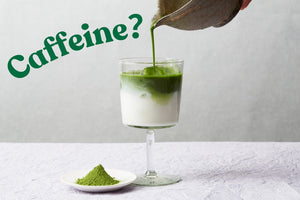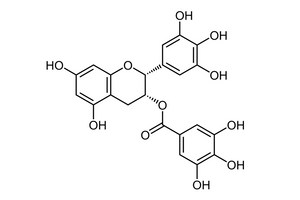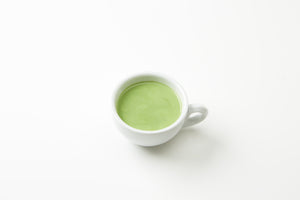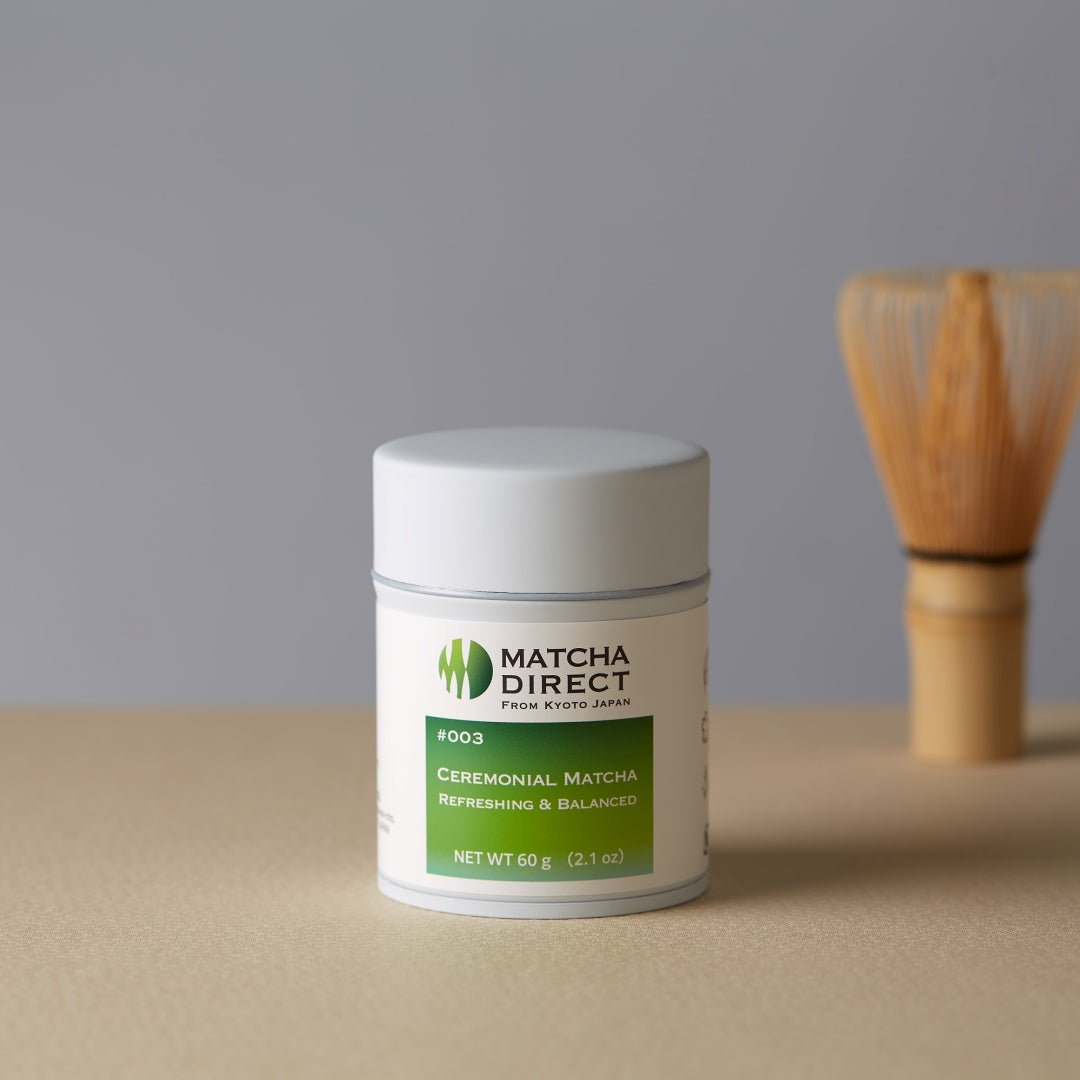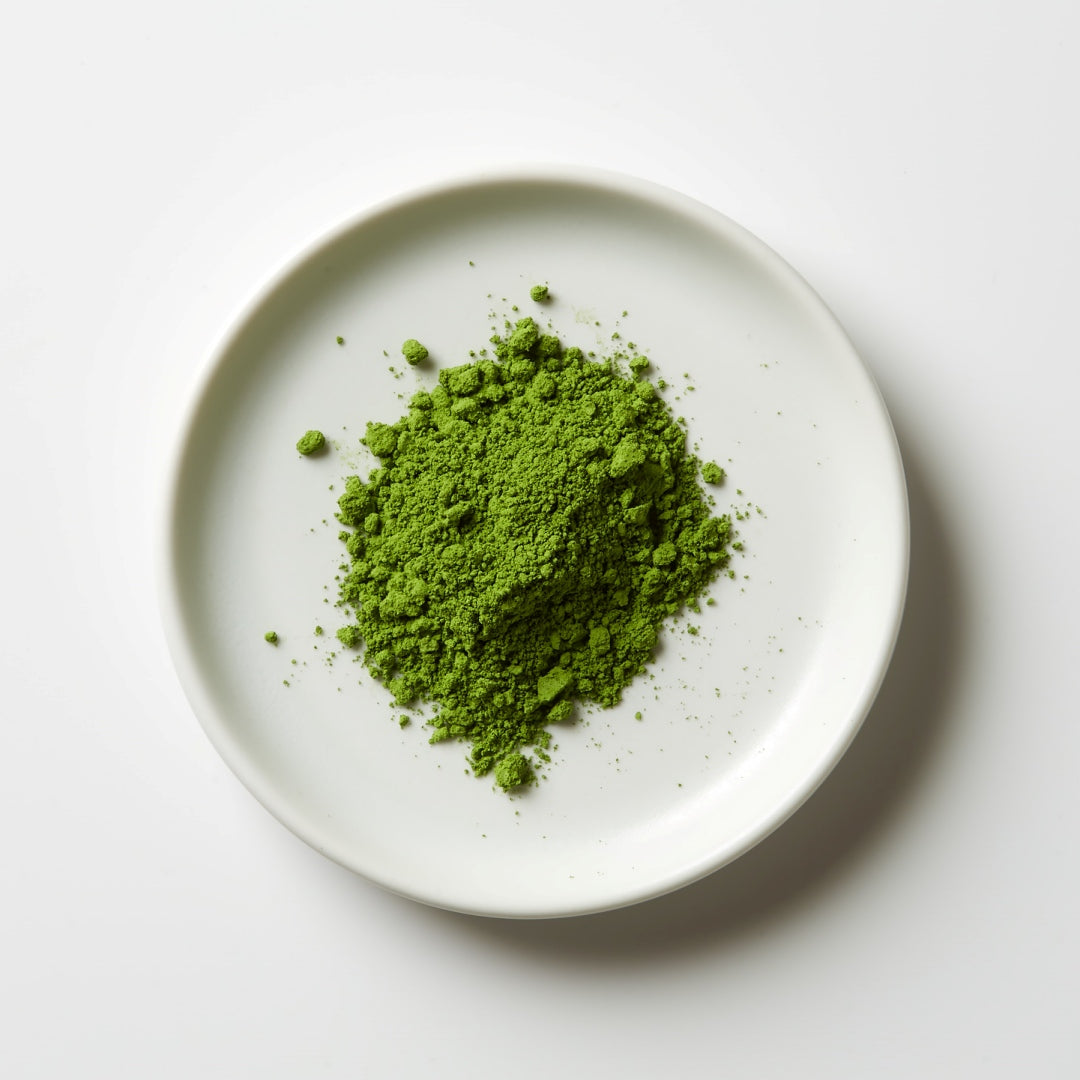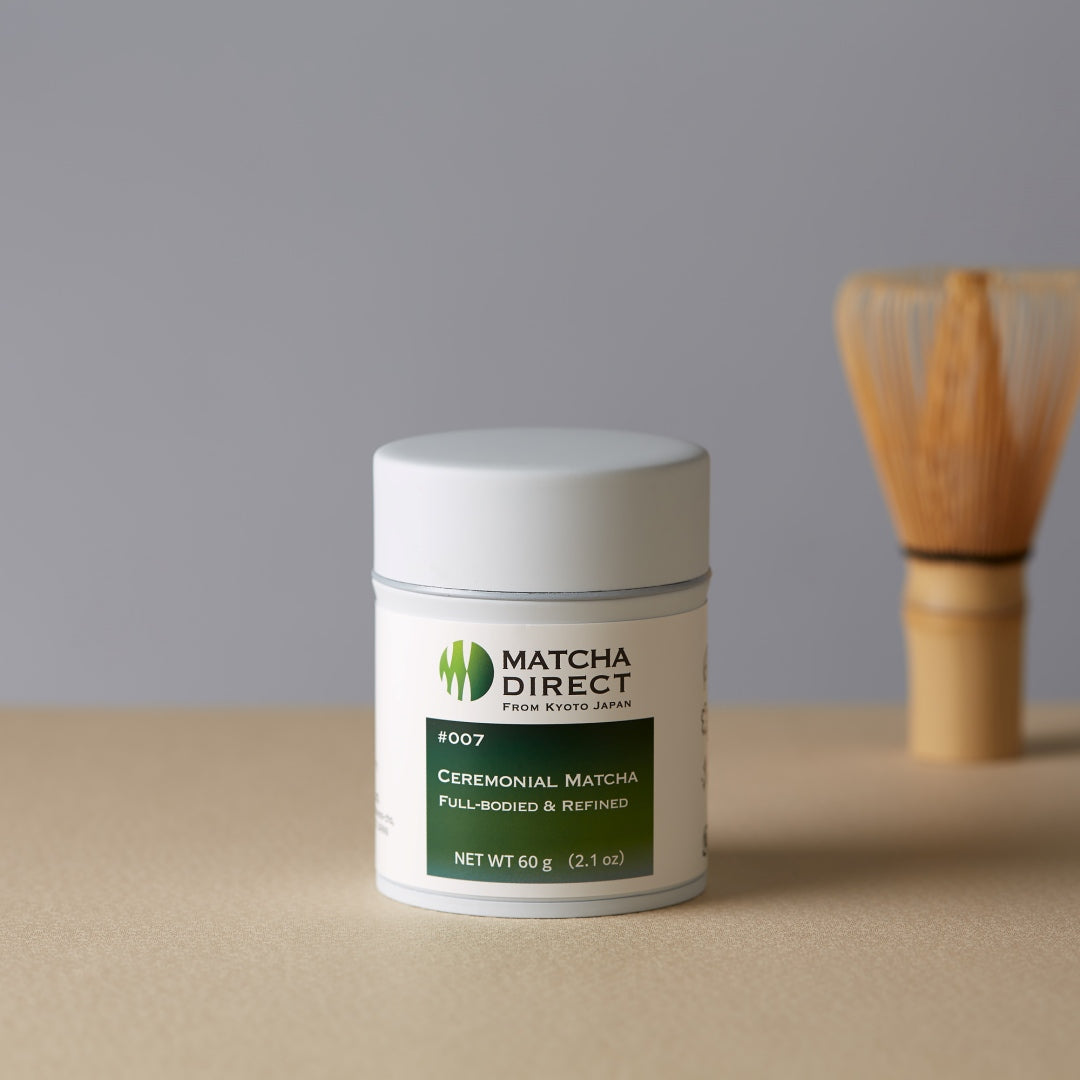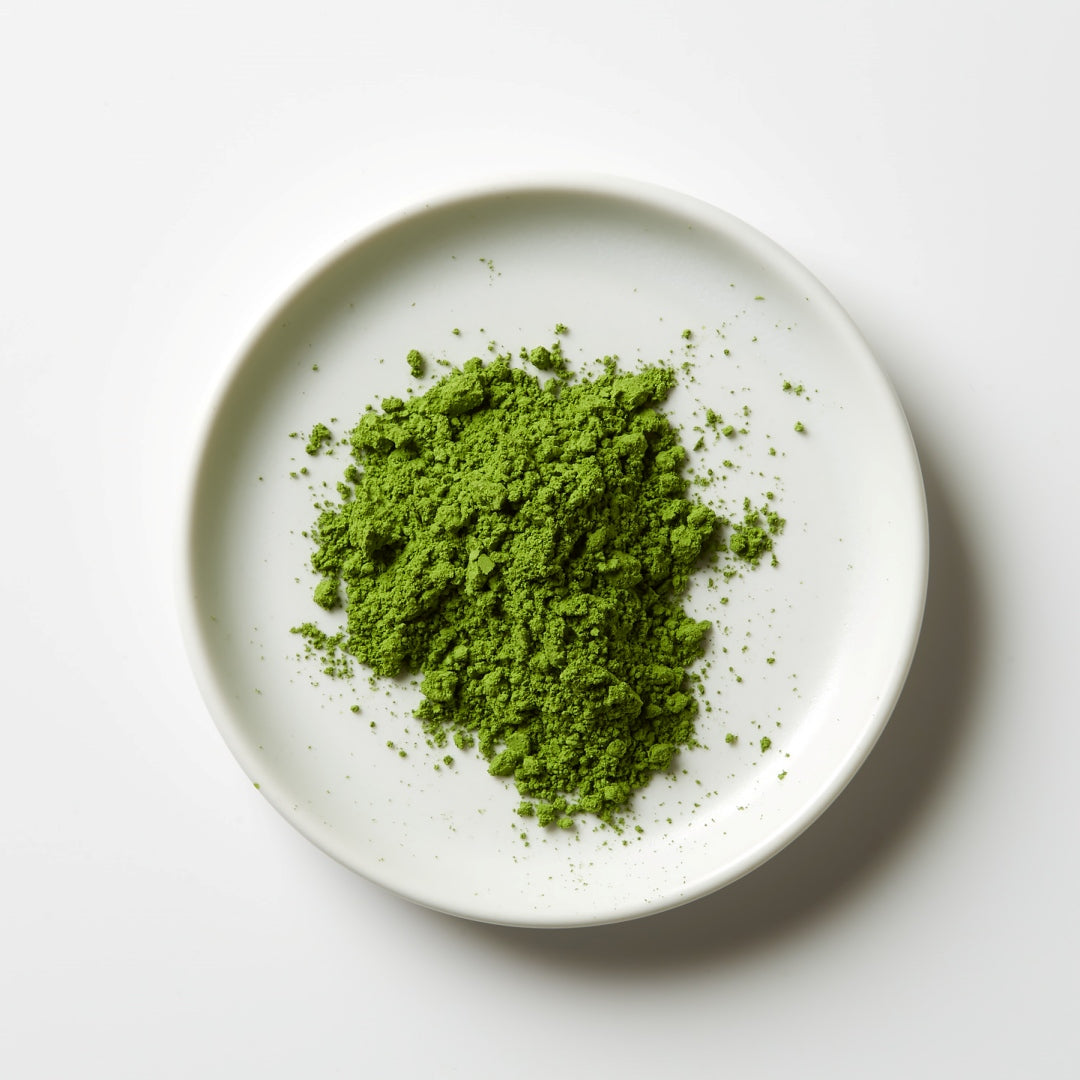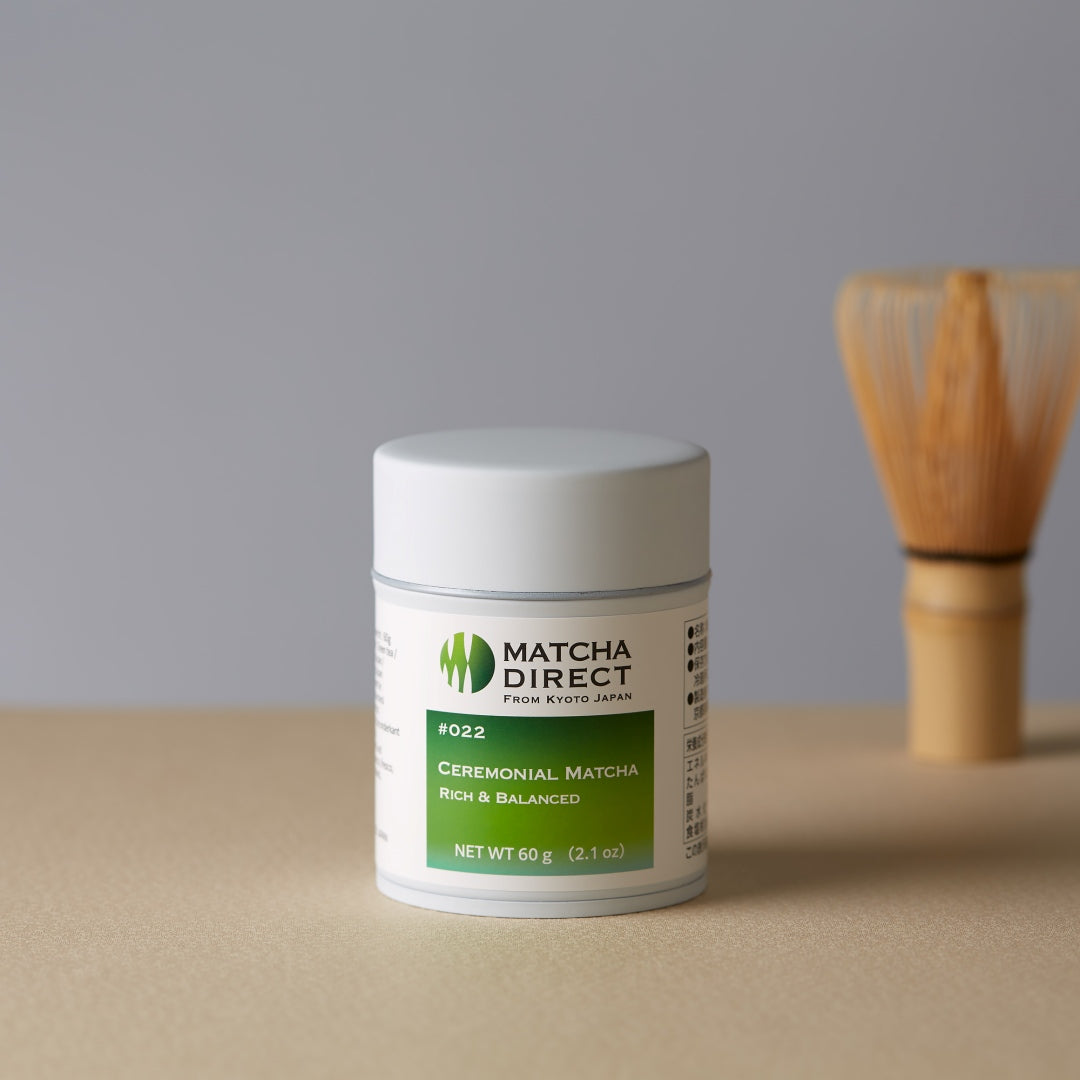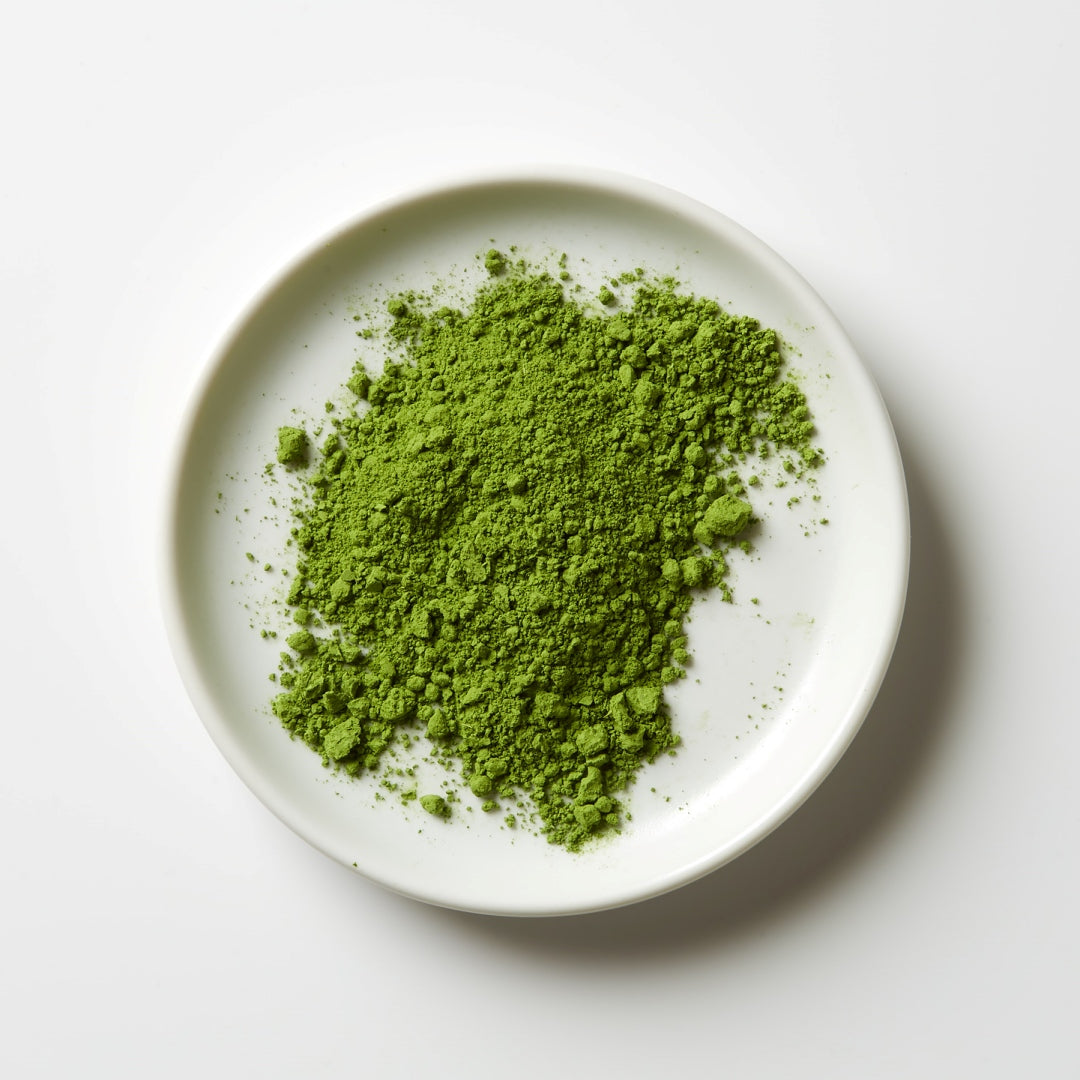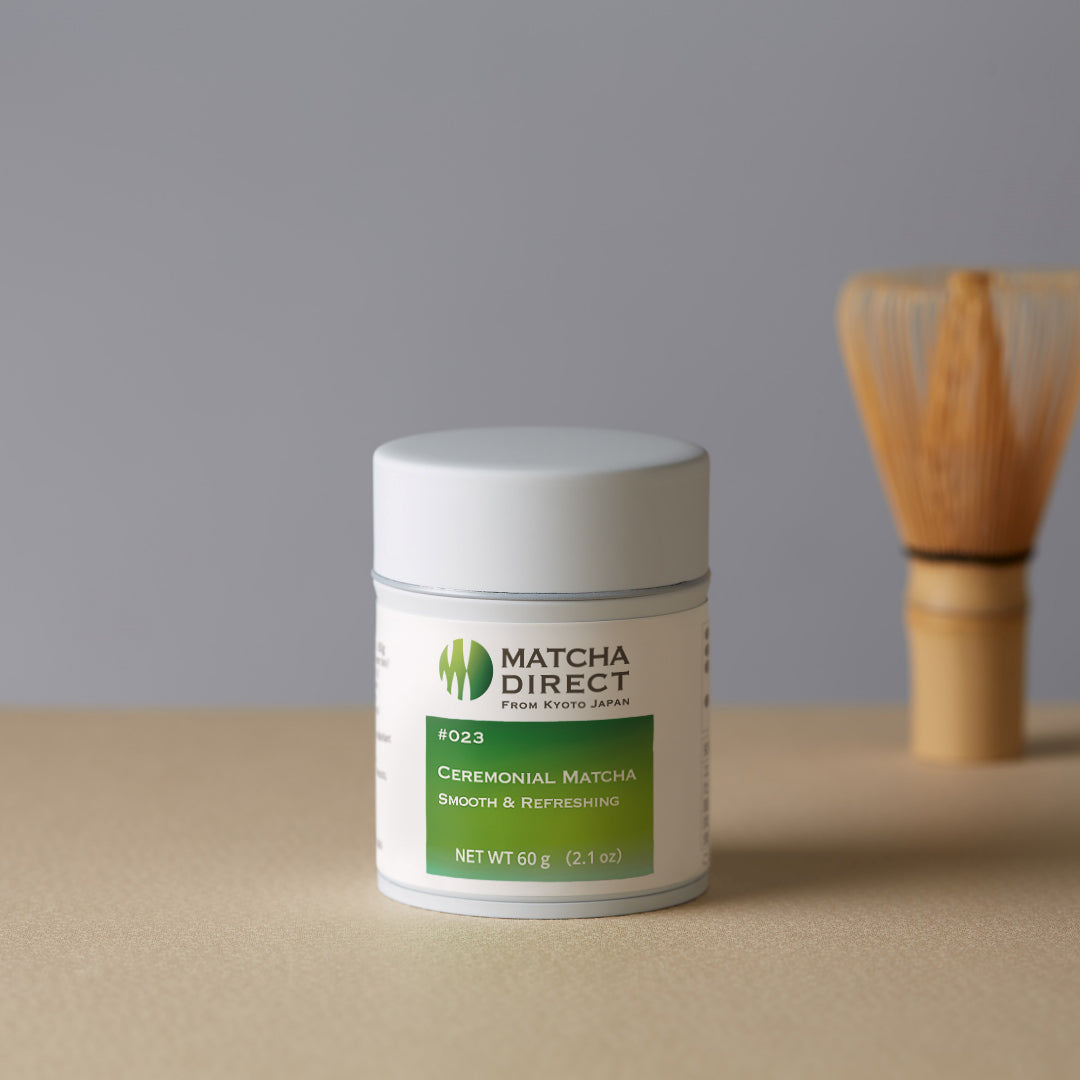Matcha Nutrition Facts
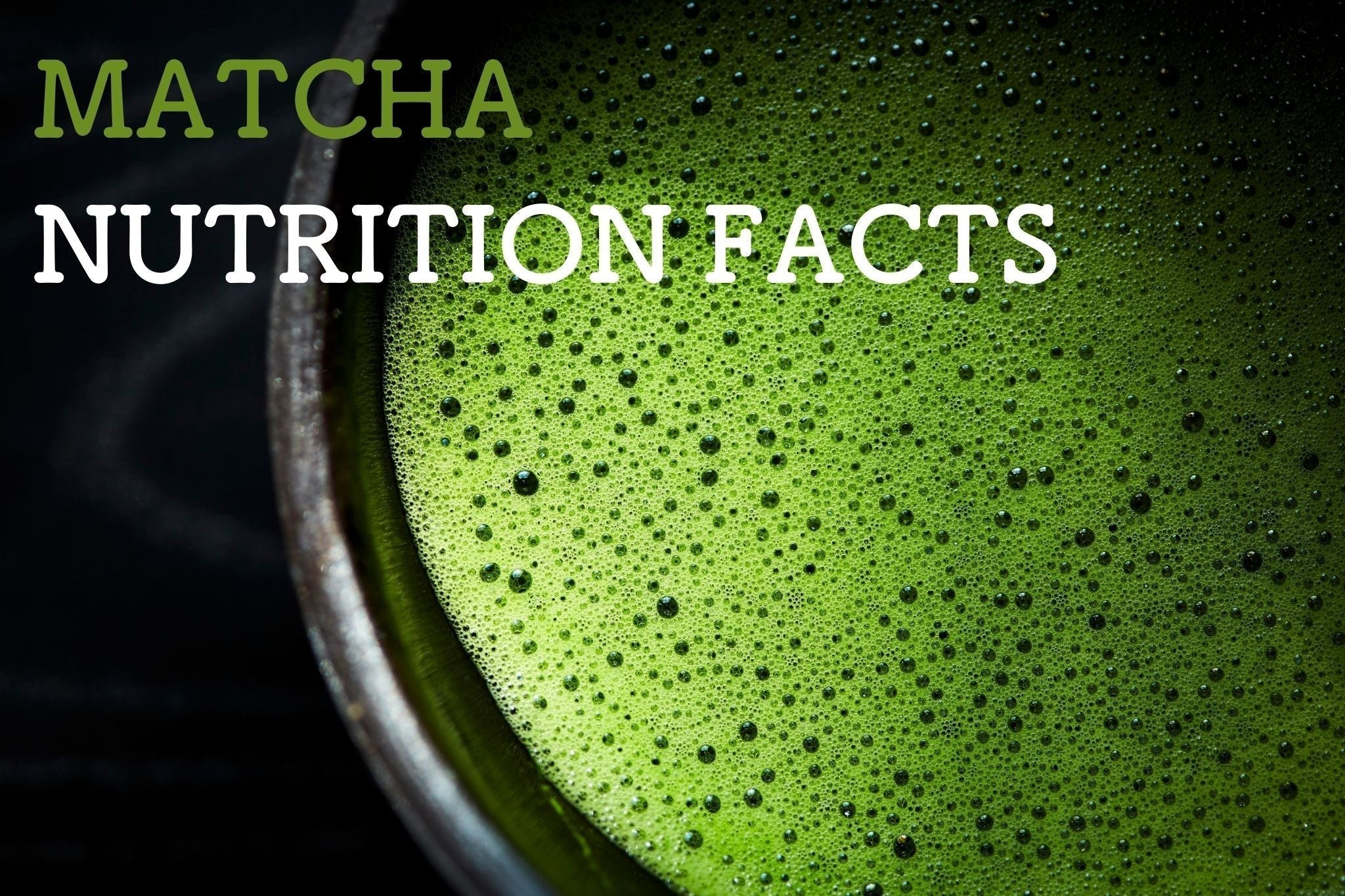
Matcha, whose charms have been rediscovered around the world recently.
Did you know that matcha contains a very rich nutrients?
While there might be a general impression that it seems healthy, few people know exactly what nutrients are contained in matcha.
Matcha is rich in various nutrients such as vitamins and minerals, making it a tea with very high nutritional value.
Furthermore, since matcha is drunk in powdered form, using the whole leaf, it allows one to fully enjoy the nutrients contained in the leaves, possessing a strong antioxidant power compared to other foods.
Please read this article to deepen your knowledge about the nutrients hidden in matcha.
Nutrients and Components of Matcha

Let's introduce the nutrients contained in matcha.
Vitamins
Matcha contains a rich variety of vitamins, including vitamin A (beta-carotene), vitamin C, and vitamin K.
Vitamin C is usually sensitive to heat and is easily destroyed. However, the catechins in matcha, which will be discussed later, are said to have the function of protecting vitamin C. Consuming catechins and vitamin C together, as in matcha, allows for efficient nutrient intake.
Vitamin C is produced by exposure to sunlight. Therefore, matcha, which uses leaves grown under cover, has less vitamin C compared to green teas like sencha that are grown under direct sunlight.
However, on the other hand, it is said that matcha contains more vitamins A and K than sencha.
Vitamin K is a vitamin that does not dissolve in water, so the vitamin K contained in sencha is almost not absorbed. In this respect, matcha, which is made from the leaves themselves, makes it easier to intake vitamin K, and you can consume more vitamin K than in sencha.
Although there are differences in the amount compared to sencha, matcha contains many vitamins necessary to maintain normal bodily functions.
Minerals
For a healthy lifestyle, it is essential not only to consume vitamins but also minerals.
Matcha is rich in various types of minerals such as potassium, calcium, phosphorus, magnesium, iron, and zinc.
While there are nutrients like vitamin C, which is more abundant in sencha as mentioned earlier, most of the minerals contained in matcha are present in much higher amounts than in sencha.
Therefore, by drinking matcha rich in minerals every day, you can easily and deliciously replenish your minerals.
Matcha can be said to be an excellent beverage for preventing mineral deficiencies that are common in the modern unbalanced diet.
Dietary Fiber
Dietary fiber is an important nutrient known to regulate the function of the stomach and intestines.
There are two types of dietary fiber: soluble, which dissolves in water, and insoluble, which does not dissolve in water. Tea leaves contain mostly insoluble dietary fiber.
In the case of sencha, the tea leaves are steeped in water or hot water to brew the tea, and then the leaves are discarded, so the tea actually consumed contains relatively small amounts of insoluble dietary fiber.
On the other hand, matcha involves grinding the tea leaves into a powder and drinking it directly, allowing you to ingest the insoluble dietary fiber contained in the leaves.
It is said that insoluble dietary fiber contains health benefits not found in soluble forms. Therefore, by drinking matcha, you can reap the benefits of dietary fiber that are not available from sencha.
Catechins
Catechins, a type of polyphenol found in many plants, are also an indispensable component of matcha.
Catechins are responsible for creating tannins, which contribute to the bitterness and astringency of matcha. Recently, research results concerning the effects of catechins have been published worldwide, and beverages containing catechins are widely sold, making it a component that has garnered significant attention in recent years.
Catechins are also found in fruits such as apples and grapes, but it is said that tea contains a higher concentration of catechins.
Among these catechins, 'Epigallocatechin gallate (EGCg)' is known for its strong antioxidant properties and is particularly abundant in matcha.
Theanine
Theanine, a type of amino acid involved in human protein synthesis, is a component that creates the umami flavor of tea.
Theanine has the function of inhibiting hormones that produce stress, and it is said to have soothing and relaxing effects. The comforting feeling you get from drinking matcha might be due to the effects of theanine it contains.
From this, it can be said that matcha is the ideal tea for breaks and rest periods.
Theanine has the property of converting into catechins, which are astringent components, when exposed to sunlight. Therefore, matcha, which is made from tea leaves grown under cover to block sunlight, contains more theanine than teas like sencha that are cultivated by exposure to sunlight, thus enhancing its umami flavor.
Caffeine
Caffeine, a component said to be related to the bitterness of tea, is also contained in matcha.
Caffeine is commonly associated with its ability to wake us up, but actually, matcha contains as much caffeine as coffee.
However, the comforting and relaxing sensation you get from drinking matcha is different from the sharp alertness you feel from coffee.
The reason for this lies in the effects of theanine, which I mentioned earlier.
In fact, theanine has the ability to moderate the effects of caffeine.
Therefore, even though matcha and coffee contain the same amount of caffeine, the sensation experienced when drinking them is entirely different.
However, it is important to note that theanine does not eliminate the caffeine in matcha, so those concerned about the effects of caffeine should be cautious.
Saponins

Saponins may not be as familiar as catechins or caffeine, but they are naturally occurring components found in the leaves and roots of plants, and are also present in beans such as soybeans.
While they have a bitter taste, they contain nutrients that are beneficial for health. Additionally, they have antibacterial properties and the ability to create foam, which makes them suitable for use in products like soap.
Saponins are related to the astringency and bitterness of matcha, and have the property of forming foam when dissolved in water. The foam that appears when matcha is whisked is due to the action of saponins.
Saponins are also one of the nutrients known as 'phytochemicals', which are considered essential for health alongside vitamins and minerals.
What Nutrients, Carbohydrates, and Fats are Contained in a Cup of Matcha?
As we have introduced so far, matcha contains many nutrients.
So, how much of these nutrients are contained in one cup of matcha?
Also, how much fat and carbohydrates, which are the source of sugars, does it contain?
Based on the amount of matcha used for a typical 'usucha' (thin tea), which is 2 grams, here are the components contained in one cup of matcha:
| Energy | 5kcal |
|---|---|
| Fat | 0.1g |
| Carbohydrates | 0.8g |
| Vitamin A (β-carotene) | 580μg |
| Vitamin C | 1mg |
| Vitamin K | 58μg |
| Dietary Fiber | 0.8g |
| Potassium | 54mg |
| Calcium | 8mg |
| Magnesium | 5mg |
| Phosphorus | 7mg |
| Iron | 0.3mg |
| Zinc | 0.1mg |
| Catechins | 200mg |
| Theanine | 27-53mg |
| Caffeine | 64mg |
Reference: Japan Food Standard Composition Table 2020 Edition (8th Revision)
Is It Okay to Drink Matcha Every Day?
Many people associate matcha with health, but how effective are the nutrients we've introduced earlier? Conversely, are there any disadvantages to drinking it every day?
Let's compare these nutrients with the daily recommended nutrient intake.
| Nutrients in 2g of Matcha | Daily Nutrient Intake | |
|---|---|---|
| Energy | 5kcal | 2,144kcal |
| Fat | 0.1g | 88.2g |
| Carbohydrates | 0.8g | 105g |
| Vitamin A (β-carotene) | 580μg | 629μg |
| Vitamin C | 1mg | 77.3mg |
| Vitamin K | 58μg | 126.7μg |
| Dietary Fiber | 0.8g | 16.6g |
| Potassium | 54mg | 2,595mg |
| Calcium | 8mg | 945mg |
| Magnesium | 5mg | 303mg |
| Phosphorus | 7mg | 1,369mg |
| Iron | 0.3mg | 13.9mg |
| Zinc | 0.1mg | 10.8mg |
Standards: Nutrient intake for American adults (from National Institute of Health and Nutrition publication)
The concerning nutrients such as fats and carbohydrates are extremely minimal in the context of daily intake. Conversely, one cup of matcha can provide almost all the daily intake of Vitamin A and about half of the Vitamin K required.
Next, let's look at catechins, theanine, and caffeine.
| Nutrients in 2g of Matcha | Safe Daily Intake | |
|---|---|---|
| Catechins | 200mg | - |
| Theanine | 27−53mg | 200mg |
| Caffeine | 64mg | 400mg |
There is no specific intake goal set for catechins. Although it's recommended to limit theanine to 200mg per day, no significant health damages from excessive intake have been reported in studies.
The concern is caffeine, which can have adverse health effects when consumed excessively. The FDA has determined that the safe daily intake of caffeine is up to 400mg.
Since one cup of matcha contains 64mg of caffeine, it would be wise to limit consumption to no more than four cups a day.
While caution is necessary with caffeine, matcha, which can efficiently deliver daily nutrients, can be consumed daily without problems and may even help support your health with just one cup per day.
For those still concerned about caffeine, at MATCHA DIRECT, we offer Decaf Matcha.
Using the same technology used to remove caffeine from coffee, our Decaf Matcha reduces caffeine content while retaining the flavor and nutrients of matcha, making it a recommended product at MATCHA DIRECT.
https://matchadirect.kyoto/products/051-decaf-matcha-60g
Summary
Matcha, containing a vast array of nutrients and safe to drink daily, can rightfully be called a superfood.
While it is necessary to be mindful of caffeine intake, matcha can be a great partner for a healthy everyday life, and you should actively incorporate it into your lifestyle.
At MATCHA DIRECT, we offer a wide variety of matcha.
Our matcha is ground individually upon each order, ensuring freshness, and we provide free shipping.
Why not choose high-quality, fresh matcha, especially if it’s something you’ll drink every day?




